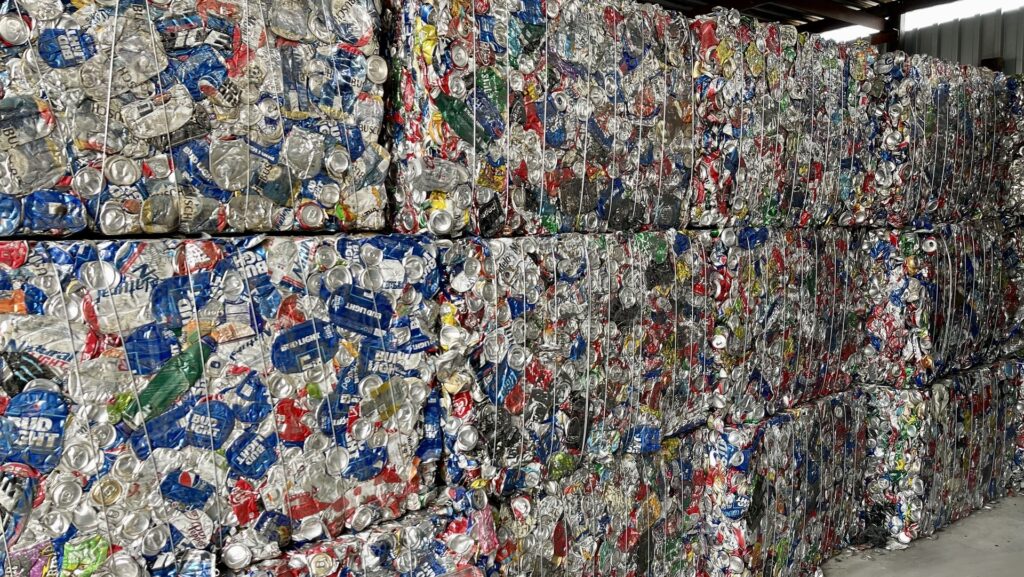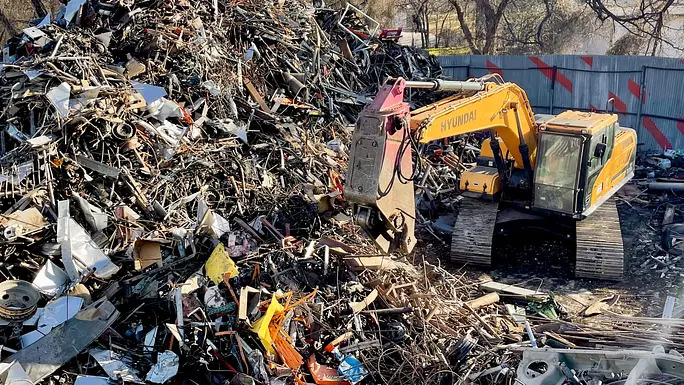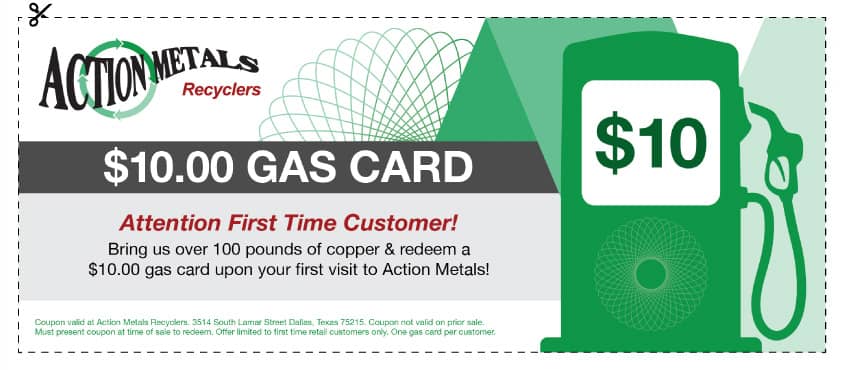The process of transforming unwanted scrap metals into usable metal bars and sheets is one of the most remarkable achievements stem from the recycling movement.
While most people understand the profitability and environmental benefits of recycling ferrous and non-ferrous metals, the process itself is one that often goes unnoticed once scraps enter the hands of recycling professionals.
At Action Metals Recyclers, we are proud of the services we provide to the Dallas community and are eager to show you a step-by-step look into the scrap metal recycling process we work with 365 days per year!
How to Prepare for Scrap Metal Recycling
The first unofficial step in the recycling process is actually something that our customers are responsible for.
In order to effectively prep your metals, wave a magnet over your scraps. If the magnet sticks to your scraps they have iron in them and are considered ferrous. Once you’ve separated your ferrous from non-ferrous metals, you can take your sorting a step further by separating your copper, aluminum, and steel metals.
Prepping your ferrous and non-ferrous metals helps speed up the recycling process and ensure that a customer is properly compensated for their precious metals.
5 Steps of the Scrap Metal Recycling Process
Once your metals are prepped and sorted, the actual recycling process begins!
Initial Collection
Sometimes the hardest part about getting the recycling process started is moving scraps off of your property. Whether you drop off your scrap metals on your own or organize a scheduled pickup with a local recycling company, collecting your scrap metals is the first step towards clearing out your clutter and turning your scraps into useful products.
Sorting Your Metals
Even if you’ve already sorted your scrap metals, a recycling company will strip and re-sort your metals for quality assurance.
Metals are recycled and sold by type and cleanliness. So, in order to ensure you get paid the maximum amount for your metals, it’s essential that your scrap recycling company performs this process with a professional touch.
Processing & Shredding
Once the metals are sorted, they are processed and squeezed into as compact a form as possible. This allows for easier conveyor belt use as cut and compacted metals make their way towards hammer mills where they are further shredded into even smaller metal pieces in preparation for the purification process.
Melting & Purification
Once scrap metals have been reduced they are then sent to specific furnaces that will meltdown each metal based on its makeup. Although the melting process can take hours, it’s still a very environmentally friendly practice that requires fewer resources than mining new metals.
After melting, scrap metals are purified to separate contaminants from the metals and ensure that all metals form a final quality product during solidification.
Final Solidification
At the end of the recycling process, melted metals are sent through cooling chambers where they are solidified into sheets or compacted blocks. From there, the metals are sent to manufacturing facilities where they are used in the greener production of brand new products.
Create a Greener Tomorrow with the Help of Action Metals Recyclers
If you are a business owner or Dallas resident that has a large amount of scrap metal collecting on your property, now is the time to clear out your space and put your scraps to good use. With the help of Action Metals Recyclers, recycling your scrap metals can prevent the pollution of landfills and contribute to a cleaner environment and healthier industrial economy.
Reach out to us today to learn more about the recycling process or schedule your next scrap metal pickup or drop-off.








